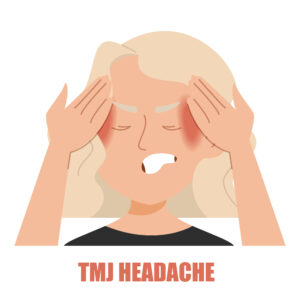 Getting a restful night of sleep is something that is critical for your overall health. Not only does it help energize and recharge your body, but sleep has been found to greatly influence cognitive and motor behaviors and abilities. That being said, any sort of sleep disruption may not seem difficult at first, but consistently, it can complicate your body’s functioning and health status. In today’s blog, your Houston, TX dentist takes a look at the way nighttime teeth grinding can negatively influence your oral health, as well as how it leads to a problematic jaw dysfunction known as TMJ disorder.
Getting a restful night of sleep is something that is critical for your overall health. Not only does it help energize and recharge your body, but sleep has been found to greatly influence cognitive and motor behaviors and abilities. That being said, any sort of sleep disruption may not seem difficult at first, but consistently, it can complicate your body’s functioning and health status. In today’s blog, your Houston, TX dentist takes a look at the way nighttime teeth grinding can negatively influence your oral health, as well as how it leads to a problematic jaw dysfunction known as TMJ disorder.
The Natural Progression of Bruxism
Have you ever awoken from a night of rest with a sore or tense feeling in your jaw? What about difficulties opening the jaw completely? If you answered yes to either of these questions, chances are you are experiencing an episode of teeth grinding. Indeed, bruxism – the formal name for chronic teeth grinding – is a phenomenon that occurs when a person tightly clenches his or her jaw together as he or she slumbers, then proceeds to move the lower jaw from side to side.
Bruxism may seem as though it is nothing more than an inconvenience at the time, however, it can actually lead to significant damage from the friction generated as teeth rub against one another. As this phenomenon continues, you experience an even greater likelihood of developing a dangerous jaw dysfunction known as TMJ disorder.
TMJ disorder occurs when your lower jaw becomes misaligned with at least one of your two temporomandibular joints (TMJs). When this occurs, there is a heightened chance of experiencing a host of signs and symptoms. To learn more about this process, give our team a call today.
Signs and Symptoms of TMJ
One of the major concerns that arises from TMJ disorder is the presence of an incessant popping or clicking sensation in the jaw. This results from your jaw’s efforts to pop back into place and correct the concern.
A complication that arises from this process, however, include significant damage to your tissues. Moreover, you may experience significant discomfort, pain, and difficulty opening the mouth for routine tasks such as biting, chewing, and eating. Contact our team to learn more about your options today.
Looking at Treatment to Help
Although chronic teeth grinding and bruxism are not concerns that should be regarded lightly, there are solutions to treat these issues. For example, a custom mouthguard can protect teeth from chronic damage, and guided splint therapy can help promote gradual correction without fear of tissue or other damage.
Schedule Your Next Appointment
To learn more about the need for TMJ disorder treatment or to schedule your next appointment with our team, contact SleepWell Houston in Houston, TX by calling 713-796-9600 and set up your next appointment today.










Recent Comments